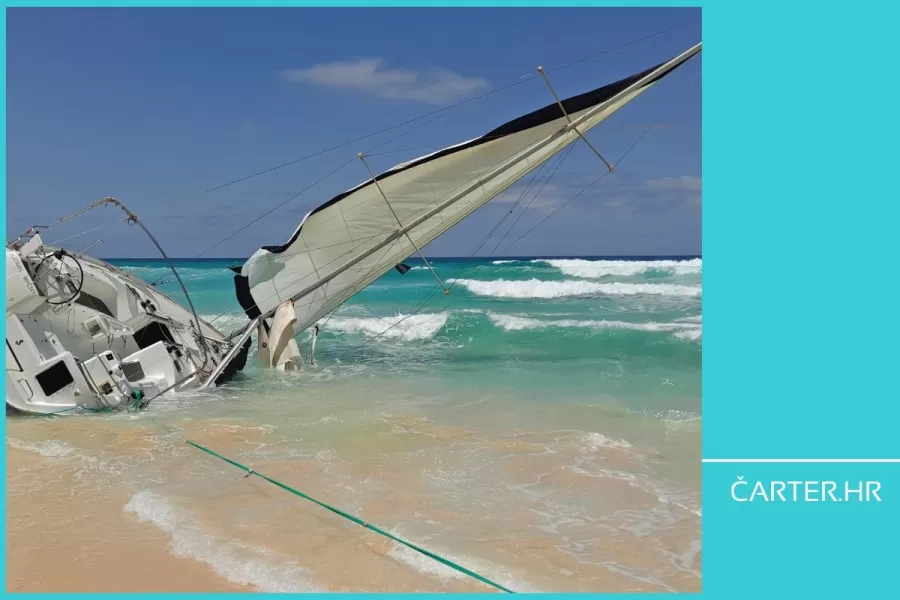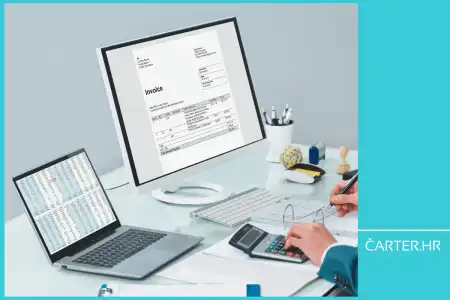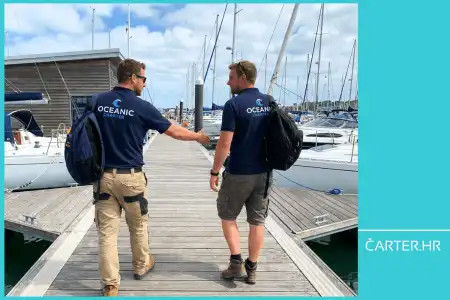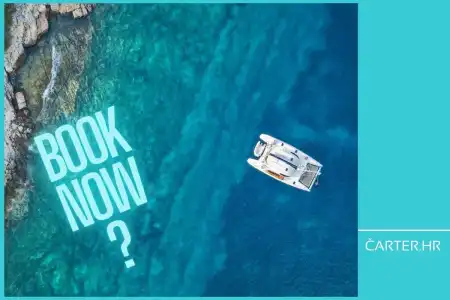
- 27.06.2023.
- News, Regulations
Unfortunately, accidents at sea are not rare, and according to the latest reports, the number of accidents at sea has been gradually increasing. When an accident at sea occurs, the legal framework governing such situations can be complex and different depending on the jurisdiction.
Accidents at sea can seriously affect human life, the environment and property. When such accidents occur, it is essential to understand the legal ramifications resulting from them to ensure liability for damages and justice for all parties involved.
In this article, we will explore some key aspects of the legal consequences of accidents at sea.

International legal framework
Accidents at sea often cross the borders of individual countries; therefore, the international legal framework is of vital importance. International rules and conventions provide guidelines and regulations governing liability and compensation for damage caused by accidents at sea.
Some of the key international legal acts related to accidents at sea are:
- Convention on International Trade in Dangerous Goods at Sea (IMDG Convention) - this Convention, adopted by the International Maritime Organization (IMO), regulates the transport of dangerous goods at sea. It contains regulations on the marking, packaging, loading and transportation of hazardous goods to ensure the safety of navigation and the prevention of accidents.
- International Convention on the Safety of Human Life at Sea (SOLAS) - the most important international Convention in navigation safety is the Convention on the Protection of Human Life at Sea. The occasion for adopting this Convention was the " Titanic " maritime disaster in 1912.
- Convention on International Rules for Preventing Collisions at Sea (COLREG) - a set of rules that regulate maritime transport and apply to all ships, without exception. It covers a large number of situations that need to be taken care of.
- International Convention on Load Lines (LL)
- International Convention on Tonnage Measurement of Ships (TONNAGE)
- International Convention on Standards of Training, Certification and Watchkeeping (STCW)
- The Convention for the Prevention of Pollution from Ships (MARPOL) - adopted by the IMO, aims to prevent marine pollution caused by ship operations. MARPOL includes regulations on the discharge of waste, oil, chemicals and wastewater, as well as regulations on the prevention of pollution of the marine environment.
- The Convention on Civil Liability for Damage Caused by Tanker Pollution (CLC Convention) - prescribes a system of liability and compensation for damage caused by pollution from tankers. It ensures that tanker owners are liable for damage and obligates them to provide financial liability insurance.
- The International Convention on Search and Rescue at Sea (SAR Convention) - also adopted by the International Maritime Organization, establishes international standards for the organisation and implementation of search and rescue operations at sea. The goal is to ensure adequate procedures in the event of accidents and save the lives of seafarers and passengers in danger.
- Convention on Intervention at Sea in the Case of Oil Pollution (OPRC Convention) - regulates international cooperation and actions in case of oil pollution at sea.
Regulating accidents at sea, shippers' responsibilities, the role of insurance and legal support
Maritime law is a specialised branch of law that deals with accidents at sea and related legal issues. It includes maritime safety rules, shipowners' liability, compensation, insurance and other aspects of maritime accidents.
Shipowners have specific legal obligations and responsibilities towards passengers, crew and cargo. In the event of an accident at sea, they may be held liable for damages resulting from their negligence, poor ship maintenance, or violation of regulations. The shipowner's liability may be civil or even criminal, depending on the circumstances of the accident.
Insurance is a vital aspect of the legal consequences of accidents at sea. Boaters are required to have adequate insurance to cover potential damage that may occur in the event of an accident. Insurance companies are essential in paying damages and compensation for injured parties.
Maritime lawyers are experts in this field and play an important role in proceedings initiated after an accident at sea.
 A key understanding of the legal consequences of accidents at sea - safer navigation
A key understanding of the legal consequences of accidents at sea - safer navigation
Unfortunately, accidents at sea, including shipwrecks, vessel collisions and passenger injuries, are not uncommon. According to the latest reports, the number of accidents at sea has been gradually increasing in recent years. Understanding these statistics helps us understand the importance of adequate legal protection measures.
In the period from 01.01.2022. until 31.12.2022., in the area of responsibility of MRCC Rijeka and the other 8 MRSCs (Pula, Rijeka, Senj, Zadar, Šibenik, Split, Ploče, Dubrovnik), due to various maritime accidents and incidents, a total of 550 search and rescue interventions were undertaken at sea, by category in a table view.
Given that the yacht charter fleet in Croatia covers about 40% of the world's charter fleet, it is clear that the probability of accidents occurring is also high.
When an accident at sea occurs, the legal framework governing such situations can be complex and different depending on the jurisdiction. Understanding rights and obligations is essential to protect interests and minimise potential legal risks.
Accidents at sea often result in physical injury, property loss or other damage. Insurance plays a crucial role in these situations. Understanding the terms and conditions of insurance coverage helps us prepare for potential accidents and their financial consequences.

When an accident at sea occurs, proper emergency procedures can save lives and minimise damage. Knowledge of security protocols and legal procedures helps us act quickly and efficiently.
When you are faced with an accident at sea, it is essential to have the legal support of experts who are knowledgeable in maritime law. Professional lawyers can help you understand your rights, advise how to proceed and represent injured parties in legal proceedings.
Considering the complexity and challenges that the maritime industry faces, understanding the legal consequences of accidents at sea becomes indispensable.
Understanding the legal ramifications of marine accidents is critical for all stakeholders in the maritime industry. For boaters, this means complying with legal regulations and safety standards to minimise the risk of accidents and reduce liability. For injured parties, this means timely recognition of their rights and proper action to ensure fair compensation for the damages suffered.
When an accident occurs at sea, specific steps should be taken to ensure the safety of the crew, passengers and the ship and to minimise damages. Here are some critical steps to take in such situations:
It is necessary to quickly assess the seriousness of the accident and understand the type of problem you’re facing. This may include a collision, fire, flood, machine breakdown or other emergency.
The crew should be informed of the accident, and clear orders should be given to maintain safety and control of the situation. This may include setting up emergency exits, activating safety measures and providing the necessary rescue equipment.
Immediately inform the competent maritime authorities about the accident. This may include contacting the coastguard, the port or other relevant institutions. Providing accurate and complete information helps in organising the necessary assistance and rescue.

If necessary, measures should be taken to save all persons on board. This may include activating lifeboats, providing life jackets and ensuring all passengers and crew access safe exits.
It is necessary to collect all relevant information and document the accident. This may include photographs of the damage, notes on weather conditions, witness statements and other relevant information. These documents can be helpful when submitting an insurance claim or investigating the cause of an accident.
One of the steps is communication with the insurance company to achieve financial protection for the insured.
Judicial practice regarding maritime accidents is vast.
Let's be aware of the legal consequences of accidents at sea and apply best practices to ensure safety.
Categories of trends
- News
- Sale
- Marketing
- SEO
- Web design
- Social media
- Technology
- Regulations
- Management
- Education
- Finances
- User experience
Newsletter
Sign up for the newsletter and receive the latest trends and tips straight to your inbox




